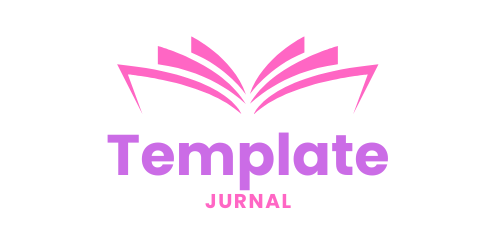PEMBIAYAAN BAGI HASIL (Sektor Produktif) ANTARA IDEALITAS DAN REALITAS
DOI:
https://doi.org/10.24256/joins.v1i2.594Abstract
ABSTRACT
 This journal discusses "Profit Sharing Financing between Ideality and Reality", the purpose of this paper is to describe the ideals of the theoretical profit sharing concept and the reality of its less ideal application, as well as the constraints that cause the reality of profit sharing financing that is not as ideal as the concept.
Theoretically, profit sharing is the substance of sharia banking operations developed in mudharabah and musyarakah financing products. This financing is projected to drive the economy of the people, this is because the mudharabah / musyarakah pattern is a form of direct investment in the real sector that drives people's economic growth (SMEs) which in turn will have an impact on improving the country's economy. The profit sharing system reflects the values of justice, togetherness, help to help which is part of Islamic teachings.
However, on a defacto basis, in Islamic banking operations, the financing channeled is dominated by murabaha financing (komsumtif) compared to mudharabah financing. This is due to the high risk that must be faced by Islamic banks, which requires them to be very selective and careful which consequently causes this financing to be less than optimal.
Â
ABSTRAK
 Jurnal ini membahas tentang “Pembiayaan Bagi Hasil antara Idealitas dan Realitasâ€, tujuan tulisan ini yaitu untuk memaparkan tentang idealitas konsep bagi hasil secara teoritis dan realitas penerapannya yang kurang ideal, serta kendala-kendala yang menyebabkan realitas pembiayaan bagi hasil yang tidak seideal dengan konsepnya.
Secara teoritis bagi hasil adalah subtansi dari operasional perbankan syariah yang dikembangkan dalam produk pembiayaan mudharabah dan musyarakah. Pembiayaan ini diproyeksikan dalam menggerakkan perekonomian umat, hal ini dikarenakan pola mudharabah/ musyarakah adalah bentuk investasi langsung pada sektor riil yang menggerakkan pertumbuhan ekonomi rakyat (UKM) yang selanjutnya akan berimbas pada peningkatan perekonomian negara. Sistem bagi hasil mencerminkan nilai keadilan, kebersamaan, tolong menolong yang merupakan bagian dari ajaran Islam.
Namun secara defakto, dalam operasional perbankan syariah pembiayaan yang disalurkan lebih didominasi oleh pembiaayaan murabaha (komsumtif ) dibandingkan pembiayaan mudharabah. Hal ini disebabkan oleh tingginya risiko yang harus dihadapi oleh bank syariah sehingga mengharuskannya untuk sangat selektif dan berhati-hati yang konsekwensinya menyebabkan pembiayaan ini kurang maksimal.
Â
DAFTAR PUSTAKA
Antonio, Muhammad Syafi'i. Bank Syari’ah Wacana Ulama dan Cendekiawan. Jakarta: Tazkia Islami dan BI, 1999.
-------------- Bank Syari’ah Dari Teori Ke Praktek. cet.V; Jakarta: Gema Insani Pres, 2002.
Departemen Agama RI. al-Qur’an dan Terjemahnya. Bandung:Penerbit Diponegoro, 2005.
Dewan Syariah Nasional. 2000. Fatwa Dewan Syariah Nasional NO: 07/DSN-MUI/IV/2000 tentang Mudharabah (Qiradh)â€. Jakarta.
Fuady, Munir. Hukum Perkreditan Kontemporer. Citra Aditya Bakti:Bandung, 1996.
Mardani. Fiqih Ekonomi Syariah. Jakarta: Prenada Media Group, 2012.
Muhammad. Manajemen Dana Bank Syariah. Yogyakarta: Ekonisia, 2004.
Otoritas Jasa Keuangan, Statistik Perbankan syariah. juli 2017, jakarta.
Presiden .Undang-Undang Republik Indonesia No. 21 Tahun 2008 Tentang Perbankan Syari’ah.
Republik, Pembiayaan Konsumtif Mendominasi Perbankan Syari’ah, Republika Online,ttp://www.republika.co.id/berita/syariah/keuangan/11/08/23/lqcyem-pembiayaan-konsumtif-dominasi-perbankan-syariah# (12 Pebruari 2012).
Rivai, Veitzal dan Arfian Arifin. Islamic Banking Sebuah Teori, Konsep, dan Aplikasi. Jakarta: PT. Bumi Aksara, 2010.
Shadr, Muhammad Baqir Ash. Iqtishaduna, Â diterjemahkan oleh Yudi dengan judul, Buku Induk Ekonomi Islam Iqtishaduna. cet.I, Jakarta: Zahrah, 2008.
Yunita, Ascaya Diana. Bank Syariah: Gambaran Umum. Jakarta: PPSK B1, 2005.
Downloads
Published
Issue
Section
Citation Check
License
Authors who wish to publish and disseminate their papers with the Journal Of Institution And Sharia Finance shall agree to the publishing rights set by Journal Of Institution And Sharia Finance Authors understand that they shall assign publication right to as part of the process upon acceptance for publication. Authors agreed that they will transfer certain copyrights to Journal Of Institution And Sharia Finance. Consecutively, authors still retain some rights to use and share their own published articles without written permission from Journal Of Institution And Sharia Finance.
Authors granted Journal Of Institution And Sharia Finance. these following rights; (1) the right to publish and provide the manuscripts in all forms and media for the purpose of publication and dissemination, (2) the authority to enforce the rights in the manuscript, for example in the case of plagiarism or in copyright infringement.
Journal Of Institution And Sharia Finance will follow COPE’s Code of Conduct and Best Practice Guidelines for Journal Editors to protect the research results and takes allegations of any infringements, plagiarisms, ethical issues, and frauds should those issues arise. The manuscript is attributed as authors' work, and are properly identified.



